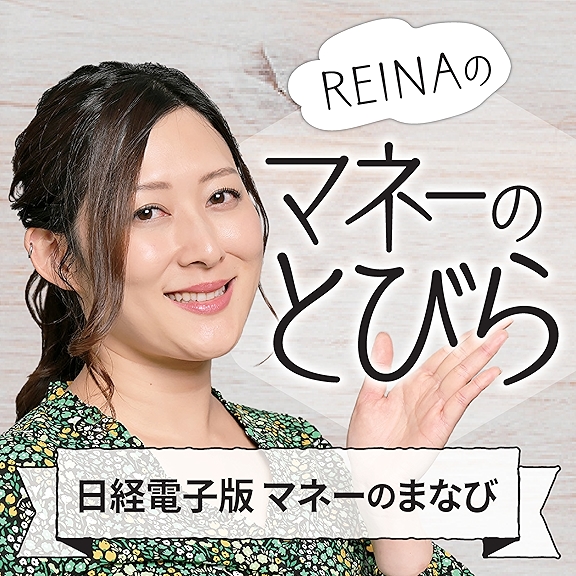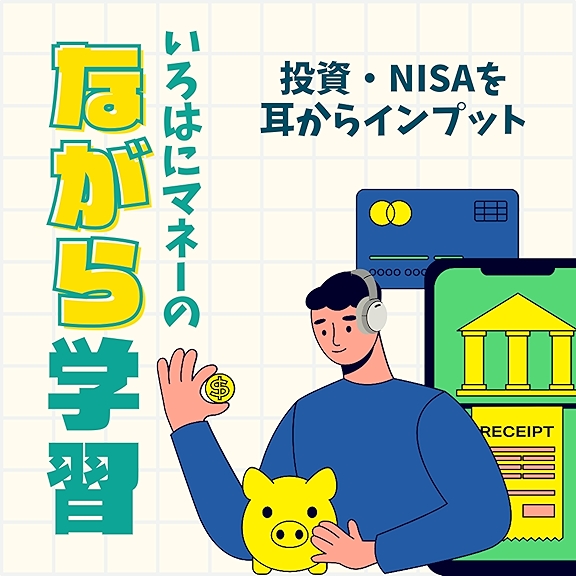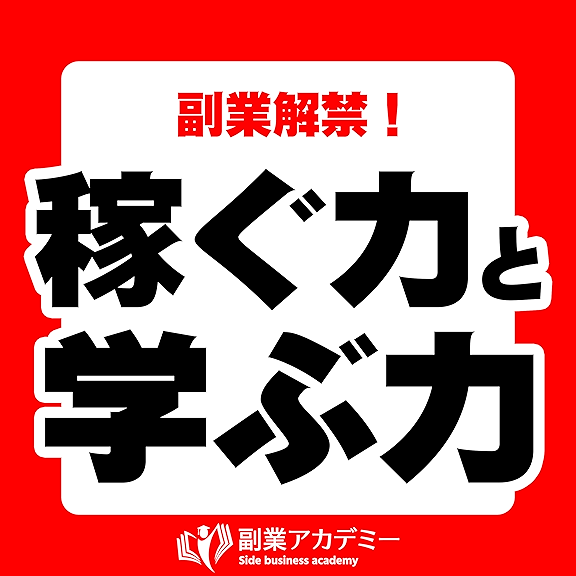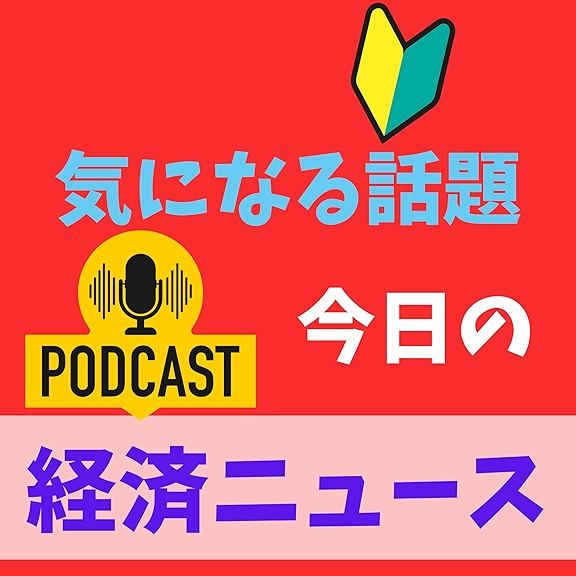
What Are Great SEO, SEM, and Inbound Marketing Strategies?
What Are Great SEO, SEM, and Inbound Marketing Strategies? Featuring Steve Wiideman
What Are Great SEO, SEM, and Inbound Marketing Strategies? Having the best website in your space is just the start. If no one is reading it then is serves no purpose adds no value. Today you have to work hard to drive the right traffic to your site, potential buyers. Those who are buyers are just vanity numbers. Use a combination of SEO, SEM, and targeted inbound marketing strategies to help prospects find your site
About Steve
Specializing in strategic planning for multi-location and franchise SEO campaigns, Steve Wiideman, of Wiideman Consulting Group, considers himself a scientist and practitioner of local and e-commerce search engine optimization and paid search advertising. He is the author of SEO Strategy & Skills, a college textbook through Stukent. Wiideman has played a role in the inbound successes of brands that have included Disney, Linksys, Belkin, Public Storage, Honda, Skechers, Applebee's, IHOP, Dole, and others, with emphasis on strategy, planning, and campaign oversight.
In 2018, Wiideman won Industry MVP at a popular SEO conference (C3 Searchies) and helped Meineke earn the NatLo Top 30 in Local Marketing by Placeable.
Wiideman and his team have worked with Fortune 500 companies and small start-ups alike for over 22 years. His personal experience ranges from having managed or assisted with large sponsored ads budgets, to turning brick and mortar businesses into Internet profit machines using SEO best practices learned while studying under the world’s best organic and paid search optimization specialists.
Wiideman conducts online video and in-person presentations at various conferences and tradeshows throughout America on such topics as the history of SEO, link-earning, multi-location ranking factors, pay-per-click advertising, responding to search engine updates, and much more. He also is a frequent panelist at online marketing events and speaks at many California meet-up groups and networking events.
Wiideman designed and teaches the Website Optimization and Strategic Search Engine Marketing online course for California State University Fullerton, the SEO Tools and Analytics course at University of California San Diego, and was recently commissioned to write a textbook for a popular online learning service for colleges.
Wiideman's information products of the 2000s have been adopted by thousands of small- and mid-sized businesses as a model for building websites on a platform optimized for higher placement in search results and social media destinations.
As a consultant, Wiideman has developed creative strategies that garner organic links and citations to web properties, in addition to strategizing website migrations, upgrades, and social media integration. Wiideman has been mentioned and featured in a number of popular publications including:
- CNN Money
- Entrepreneur Magazine
- Marketing Sherpa
- National Journal
- Response Magazine
- Vice Magazine
- Visibility Magazine
- CNBC
- Vice / Motherboard
- Fortune Magazine
- Local Search Association
- American Express
Wiideman is currently working on a project to provide his knowledge in the SEO industry in the form of a 6-week online training program.
Steve’s current projects include a transparency service for small businesses, along with experiments his team is running to better understand the impacts of voice search, featured snippets, and structured data.
How to reach Steve Wiideman:
By Phone: (562) 732-4417
By Email: info@wiideman.com
By Social: @seosteve | linkedin.com/in/seoexpert
Business of Business Podcast Offer: https://courses.wiideman.com/
-
- CODE: SEOSTEVE (complimentary access)
www.thebusinessofbusinesspodcast.com
Full Transcript Below
What Are Great SEO, SEM, and Inbound Marketing Strategies? Featuring Steve Wiideman
Tue, 8/17 12:11PM • 45:04
SUMMARY KEYWORDS
people, page, seo, work, clients, website, search, pay, site, google, create, business, ad, set, questions, important, buy, steve, put, users
SPEAKERS
Steve, Roy Barker
Roy Barker 00:03
Hello, and welcome to another episode of The Business of Business Podcast. I'm your host Roy. Of course, we are the podcast that brings you a wide variety of guests that talk to a diverse set of topics. But we want to do is hopefully we can maybe bring up some topics that you may not have thought about. Or if you have something that's keeping you up at night, we can definitely provide you some information and some professionals to help you there.
Today, we're excited to have Steve Wiideman with us He is a writer, a scientist, professor and practitioner of search optimization, Steve lives and breathes and eats SEO, SEM and inbound marketing, when he's not leading his team of SEO consultants for franchise, multilocation and e commerce brands. He's a cheeseball romantic, entertaining dad, and world traveler with a passion for life, embracing culture and diversity, while serving as an adjunct professor at UCSD and CSUF. Steve's also building the Academy of Search while volunteering time to help improve transparency and industry standards as an agency trainer. Steve, welcome to the show.
Steve 01:13
Thanks for Thanks for having me. And I know, you're just hearing a little bit of my bio brings back so many memories of you know, the reason I I decided to leave, you know, the the employee role and, you know, kind of venture off on my own as an entrepreneur and how scary that journey was.
Roy Barker 01:29
Yeah, well tell us a little bit about that. Tell us a little as you know, as was marketing something, or SEO, something that you've always been into? Or have you kind of grown into that through your career?
Steve 01:40
Sure. So I was actually started in web design, while I was still in the military, it was the late 90s. And, you know, we just discovered this, this whole thing called web design and building websites. And I don't know, I just, I just found an interest in it. So when I wasn't, you know, on the on the field and, you know, playing with, you know, with rifles and, and guns and so forth, we, you know, we're playing around with gopher servers and and you know, Wi Fi and I was part of an operation at the time where I was teaching soldiers how to how to use laptops to be able to measure and fire Javelin missiles, right over hills, it was really kind of neat.
So So yeah, I just, I just discovered a love for all things. And when I when I got back home, and I was working for IBM, I had a lot of friends that said, Hey, I got a DJ business. Can you build me a website? Hey, I've got a, you know, a friend of mine who, who has a couple of limousines. But you know, he's having trouble and and other people using the internet, you know, trying to be found. And so I'm like, Well, I guess I could try to figure this stuff out. Right. And I like designing websites, let me see what I can do.
And before I knew it, I was hooked. I was addicted to, you know, all things, digital marketing, how do I get more traffic. And, you know, two years later, after sort of blank being Neo from the Matrix, and just diving in a day and night into this thing, the DJ comes to me and he says, You got to turn it off. I I'm one guy, I can't do all I can't have this many people calling me and I'm like, I might be onto something here. And so I went back to scrub
Roy Barker 03:12
them to have
Steve 03:13
I know, right? So I so I went back to school, and I got a degree in business management. And I learned how web servers work and got to install web servers, I learned how databases worked and learned everything about SQL and how databases are created and how to never type in the words DROP TABLE into programming and destroy everything. Learn some programming, you know, we started with like, was a QBasic, and then C++ and a little bit of JavaScript. I'd already been coding HTML when I went back to school.
So that part of it was pretty easy for me. But then I learned how to put all that stuff together the graphic design that the server that the databases, you know, put all that into a project so that I can take a site from conception to launch to all the way to the marketing side of it. And my first job out of college, I left the world of IBM over there and went to a kind of a startup It was called Paciolan. In fact, Yulin was like Ticketmaster, we ran 20% of the ticketing sales for for the MLB.
And we did theaters and whenever you book a ticket, you always see, you know, even you dots, whatever their site was, and that's where the ticketing thing happened. And that's where I got to really, you know, show them what I was made of as it pertained to digital marketing, not just with HTML and JavaScript, but I also got to do some things with email marketing. So I just I just discovered a passion for all things digital and you know, made that my career.
Roy Barker 04:42
Yeah, that's a cool story. I guess. I'm not that in depth, but you know, like this, you know, I was of a certain age when this the, I guess the digital revolution came along. And so, I've always been interested in it and it's, you know, just like yourself, you've seen such a change that used to, if you put up a website, you are probably virtually one of the only ones in your industry that had one up.
Steve 05:06
So put on your business card, but it wasn't good for anything else.
Roy Barker 05:10
Right. And, you know, you gain traffic just because there's nobody else in your space. But I think now we've evolved to, there's so much stuff out there that you know, you really have to find ways not only in your web design, to set yourself apart and capture that audience. But also you have to have a way for people to find you. I mean, it's this is like being its like looking for your friend and Times Square on New Year's Eve. It's tough.
Steve 05:38
And a lockdown taught us a lesson that we can't, we can't depend on people just strolling by our store and coming in as a customer is not going to work like that anymore. We have to, we have to be online, we have to pay attention to make sure that the products and services that we sell we appear for in search results in Google and Bing and YouTube. Wherever people are looking for what we have and what we know about what we do. We want to make sure that we have content there to drive customers who either have an affinity or a specific demand for what we have.
So many so many businesses just didn't realize that and when that pandemic hit, they're like, the phone stopped ringing. Even even our clients, Applebee's Nighthawk who you know, between the two of them have like 3500, you know, stores locations, you know, when when this pandemic happened? They're like, Oh, my God, what are we going to? Do? We need to put all our, our marketing on pause and stop. And we said, No, no, we're gonna, we're gonna help you through this, don't pause your marketing, pause spending if you need to, but we're going to carry the load for you. And what we ended up doing was creating delivery and takeout pages across every single location.
So if you were to do a search for breakfast delivery near me, or breakfast delivery in your city, and a lot of other queries, for restaurant terms, for Applebee's, you would actually see takeout curbside carside related keywords will drive you to their their little pages that we have create. And because of that, we think we played a pretty significant role in keeping the kitchen lights on during a period where those restaurants were about to shut down. And and now now because you know, there's two demands, right demand one was, how do we get people to still buy from us when you know, they're locked in their homes? Now the demand is, everybody's here, but all our employees quit, and they don't want to come back. So now we're launching job pages.
And we have job pages now across every single location. And now they're getting phone calls from people saying, Yeah, I need a job. My unemployment is going to run out in September, and I need to start, you know, looking for something new. And so, so now we're trying to satisfy that through digital marketing through creating a web page on the website that targets the specific thing that you know, we're trying to drive people in from,
Roy Barker 07:46
yeah, no, that's a great idea. Because, you know, we saw such a shift in such a hurry. And I think that the the companies, like you said, that could adapt, they're the ones that are still here, because there was a lot that either they couldn't some resistance or whatever, but unfortunately, they're not still in business anymore.
So but the other thing is, like, there was that big ramp up. And I don't think we're gonna see it go back down to pre COVID levels. I mean, not but I'll ask you, I think I can speak from my point of views that we would order some grocery items off of Amazon, or the local company every now and then. Yeah, yeah. But now it's like we are pretty much I haven't been to the grocery store, you know, probably in the last year, and we've just gotten what we do everything online that we possibly can. So you know, people like me, we're not going back.
It's just a waste of time to go in there when we could sit down and place our order and get it delivered. But What are y'all seeing, you know, across the industries that you serve? Do you feel like we're going to maintain a certain level, there's
Steve 08:57
a massive retention, right? When I look at the data, and granted month over month, the numbers are dropping, right month over month, they're slowly dropping more people are going out. They are kind of getting back to somewhat of normal life, but it's a very slow decrease. We're looking at like three to 5% per month, going down where people are, are looking for directions more than they're looking to place an order online.
So I'd say it depends on on the industry for shopping and clothes shopping. My wife still loves to go into the stores show $3 and torrid. I kid you not and she'll come out and she'll see me hanging from the rafter and like no, no, but just mentally yeah and and yeah, so so there there are circumstances where people still do want to shop but you know offline but I do agree. I think I think a lot of a lot of people have assimilated to the idea that they can purchase and buy things online Amazon where you can see Amazon stocks, right?
It's it's pretty obvious that that everybody is latched on to the idea that they can get whatever they need from Amazon which which is a bit of a Because there are, there are some really, there are some really good local businesses that we love to patronize and visit that, you know, that are probably not going to make it because the traffic just hasn't gone back, even though that three to 5% probably helps a little bit, they're coming out of a deficit, you know, during a period where, you know, and for restaurants, some of the restaurants had to buy all this patio stuff, and then they had to buy heaters, we know when it got cold.
And so save all this debt that they created to be able to stay in business, right and, and if it doesn't come back right away, like a hockey stick on a graph, you know, they're, they're gonna have to get more loans and get more and more debt. So I, I really feel for the small business owner. And I would encourage anybody, you know, who who feels comfortable going out to go out, patronize the local businesses, they're, they're doing online to purchase from them online, even though their system isn't as efficient as an Amazon or as, as you know.
Some of the bigger names that are out there, the targets and Walmart's, you know, put up with the wacky system, you know, and then go in and tell them, show them your experience so that they can work with their development teams to get better. But don't just not patronize them, because their mobile sites are awful. We're trying as digital marketers to help them right now. But they don't have a lot of budget. In many cases, we're just doing it pro bono to try to help businesses that we care about.
Roy Barker 11:22
Yeah, because I'm like you, we actually were having a conversation the other day about a little town just not too far from here, that I spent some time in growing up. And I was thinking that the field that you got, when you walked into this old hardware store, they still had the wood floors that were all worn down the you know, like washers and screws and everything were in these boxes, and I was just thinking, you know, how far that we have come that.
The sad thing is, those people aren't in business anymore, it's made our life a little easier, you know, ordering online, but you know, there's got, I think we have to have a good balance. Because sometimes we do need to go in and actually see this thing or touch this thing or the social contact as well. Sometimes you just want to go out and see people.
Steve 12:09
So so for you business owners that are listening, I think there's some things that you can do with your webmaster to prioritize and maybe get a little bit more visibility when people are searching locally. The first thing I'd mentioned is mobile experience, really, you know, go through your website and place an order and see what it's like, Can you do it from your thumb? Can you do it without having to fill in information on a keyboard?
Can you tap your way through an experience and, and pay with something like Google pay or Apple Pay or Amazon, you know, without having to put in credit card information? Can you can you make that experience for users so seamless that, you know, they can literally find what they need and purchase and get out in a few seconds. Accessibility is important. Make sure using large fonts, make sure that you're not putting images or text on images so that those people that are have visual impairments, you know, can't see it. And search engines can't always read the text in an image either. It's really like binary code to them.
Yeah, making sure that you know that you've thought about security and accessibility, if they don't see that, that little secure lock on the browser, they're probably going to go back to Google and choose a competitor. And over time, Google's gonna say one, that must not have been a very helpful result, I'm going to demote it and put this other more secure website up, you know, make sure that you're you're thinking about privacy. And if someone's concerned about what you're doing with their data, that, you know, they can click on the privacy policy, see that it was updated recently, and know what you're doing with your information. So privacy, security, accessibility, mobile experience, all of those things are, you know, create a strong foundation for a successful digital marketing campaign, not just for keyword rankings, but also for users who, you know, get to from referral, and so forth. Now, that's
Roy Barker 13:53
an important part, it's, I've seen to have talked about this on maybe two or three shows of late is that it's, it's important for companies to go through that buying process, because you know, what I've found is, you know, get all excited, ready to buy and get all the stuff in, and then the submit button is below the screen, and you can't move it up or, you know, there's Yes, there's this and there's that. And so, also, how many clicks does it take? Or, you know, how burdensome is it compared to others in your field, you know, make it as easy as possible.
And I think that was one thing. You know, we could say about Steve Jobs, I think he, you know, pretty much mandated his engineers, it needs to be three clicks or less to make this thing, you know, to make this procedure work. And it's important. I mean, unfortunately, our attention spans have grown short, and our patients have grown short. And so it's like you go on to the site, and if it's not working, close it and move on to the next one.
Steve 14:55
And if we're used to a two second experience, where we know exactly what to do, when we You get to a website, and some website that hasn't updated itself is taking longer than that. You know, it's why should I have to wait, I can go back to a site that's going to be faster. And that's, that's going to hurt us in the orders we get. And over time, we're going to sort of our website's gonna fizzle away and not appear in search results anymore. Right? Yeah.
So I would think, you know, also, there's, there's probably three areas that I might focus on, if you're a small business or midsize business, you've got somebody who manages your website, hopefully, you have a team of people that one who focuses on the writing to create content that people are searching for, to, you know, the person who's in charge of the technical pieces to make that mobile experience great. And three, somebody who can help promote that website.
But you're going to get with them every month. And you're going to say, how are we doing in improving these three areas? How are we improving, you know, our relevancy to what people are looking for? When I searched for shoe repair in Dallas? I see 10 pages that show up on page one, I see us on page two, what are these guys on page one doing that we're not? Let's look at their titles, let's look at their descriptions. Let's look at their content. Let's look at it on mobile, let's look at it on desktop, then let's come up with a better page that is more helpful than what the other 10 pages have. The second thing we want to look at every month is, you know, how are we improving our visibility off the website.
So somebody needs to be out there making connections with similar brands, if your shoe repair, maybe you're gonna work with a company that sells shoes, but doesn't repair them, or a few of them to build those partnerships, where they're going to refer business to you and maybe even link to your website, those links, Google's going to crawl and follow and pass some voting power to and move your whole website up for a various number of keywords. And the last thing is, when those 10 results do come up in the search, how do you stand out? How do you stand out so that you get click on More? Do you stand out because you've put your customer ratings on there? And they can see five stars under your listing?
Do you stand out because you've answered some FAQ questions, and I have two other listings underneath your listing with some questions and answers. Do you stand out because you have a video or a image thumbnail next to your listing, because you've told your developer to add some code to your site to make sure that we've got, you know, a really standout experience in the search results. So be focused on those three areas every month with your team and set some KPIs some key performance indicators of of where you want to be in a year from now, every month you sit down, how's our relevancy? How's our off page visibility? How's our search experience for users that do see us in search? And if you're nurturing those three things, you know, you're gonna see success and you know, search engine optimization.
Roy Barker 17:39
Yeah, important part that, you know, this isn't like the rotisserie of the night you see on late night TV that you set it and forget it. I mean, it because I
Steve 17:49
missed those days, that was so easy. Just throw up 50 words on a page somewhere, you know, let it go. And then two months later, you get traffic? Yeah, right, it was early,
Roy Barker 17:59
because if you even get it dialed in today, things change so much tomorrow, that, you know, you just have to stay on top of it. And there's, you know, competitors moving up and down,
Steve 18:08
not gonna rest on their laurels. Right. That's for sure.
Roy Barker 18:11
So what I don't want to do not trying to stump you, but do you know, right off the top of your head? What is the percentage of people that actually would roll to page two to look for results? Is that they still publish those?
Steve 18:25
Sure? Well, it varies based on the query, right? What's your intent? Is your intent doing research? Are you doing a what, who how, why strategies, tips, ideas, if you're doing more of a research search, you'll go as far as page three. But if you're looking for a product or service, if that product is 20 bucks, 50 bucks, you're probably not going to go past the first three results, you're going to get what you need, as long as you feel like this is a sign I trust. This is a site that I've I'm familiar with, because I've seen it other places, and they've helped me in the past with questions I've had, I've heard of them, you know, then you're not going to go past the first three or four results.
If your product is over 50 bucks, if you're getting into the 200 300 400 range, then they might go to page two, because they they want to sort of price things out, they want to see the difference. That's the larger investment. You know, they want to make sure that they're getting value, not necessarily the best price, but value. And I think you can provide value by giving people a sense of guarantee that, you know, hey, if you're not happy with this product, we're going to, you know, make sure we send it back.
We're going to warranty it, here's why you should buy it from us and not go to Amazon and try to find a cheaper rate, the loyalty programs, the initial discounts that you get when you visit a website. So yeah, again, uh, you know, depending on the intent of what the user is searching for, if it's if it's something low cost, then I just need to search by it and be done. The first couple of results if it's, you know, search, but I want to make sure I'm getting value, you know, they'll go as far as page two, but if it's just informational.
They're going to Do all sorts of searches the probably even click on image search and video search and eventually go over to YouTube because image search isn't that great in Google, or video search isn't. And so they'll go over to YouTube and find you know exactly what they're looking for, for some of those queries.
Roy Barker 20:16
So another question I had is, can you tell us the difference between SEO and SEM,
Steve 20:23
of course, so So there's two ways to look at it. For us older veteran digital marketers, search engine marketing is the all encompassing umbrella of everything we do in search. It is, you know, optimizing for organic results. It's optimizing for universal search with our images and videos. It's having paid ads, you know, at the top for shopping ads for, you know, your static text ads. And so search engine marketing is sort of everything that you do for search.
But in some context and some functional roles, they've considered sem more on the paid search side, specifically around paid search ads. So you'll hear it both ways. For me, I like to look at search engine marketing, as paid and organic. But in a lot of business functions, they'll say there's SEO, the organic side and sem the paid side. And that's okay. I don't I don't know why it did that. 10 years ago, it did this little bit of a shift. But there's two ways of looking at now, the difference in the algorithms isn't that great, right? That the only major difference is, if you're willing to spend more on the ads, you have a higher probability of appearing more often, right?
It is an auction still, but the auction isn't strictly cost. The auction has a lot to do with quality and ad relevancy. Even even if you're willing to spend $100 a click, if you're sending somebody to a page that has nothing to do with the keyword that you're bidding on, Google's not going to display your listing. So there's still there's still that algorithm, but the principles are the same, right? It's making sure that that the relevancy is there, do we have an ad that's relevant to the keyword or an organic listing that's relevant to the keyword? When they get to our page? Is the content helpful? Is it accessible? Is it secure? are they paying attention to privacy? In Google ads, they'll actually, you know, disallow or disapprove an ad, if you don't have a privacy policy, and they won't tell you why you're just like, Why did my ad get disapproved, and you realize, because you didn't say what you're doing with their data. So so the algorithms are very similar.
And they're all focused around, you know, quality, relevancy, one of the most to actual to actual hacks that you could do to sort of marry, paid and organic. The first is, if you want a better score, and paid and pay less per click, make sure that the language that you use in the ad is represented on the page. So that way, when a user does see an ad, and they go to the page, like, yeah, that's exactly what I was expecting to see. But if you say, Here's why you should buy from us, and they go to the page, and it says, here's another reason why you should buy from us, you're like, wait a minute, what about what happened in the first reason, you know, so there's, there's a lot of that disconnect sometimes.
So that's one, the other thing to do is, is you take some of the data, after running your ads for a few months, you can take some of those search terms that actually triggered your ads, and move those over to your content strategy to make sure that you're addressing those keywords. From an organic standpoint. Now, you'll start to appear more often organically, because you're taking the you know, the the data from your paid search and applying it to organic, in fact, you're taking search terms that produce sales or leads for you so that you're getting higher quality clicks on organic, not just more traffic.
And then you take the same thing from your organic data, using Google's free Search Console tool, just go to Google Search Console, log in, go to this specific performance URL for the page, it'll give you a whole list of words that Google serve that listing for, take those words, print out all the weird stuff that doesn't make sense for you put it in an exact match and throw it into your Google Ads campaign. And watch your quality scores and cost per click, go performance go through the roof. Yeah. So yeah, so there's some things that you could do if you want to do both.
But having both does give you more visibility gives you more real estates, and the data shows that there's a higher likelihood of a searcher actually clicking on one of your listings if you've got both. So which one you do? I say, do both of them pay less overtime for the paid search while you continue to nurture organic? But I would say do both for sure.
Roy Barker 24:19
Yeah, and I think one thing I learned not long ago is, if you think about things, and in terms of Google and who they are and what they do, the best, I guess thing I heard about to put that in a concise manner is that, you know, they are very focused on user experience. And so kind of to what you were saying, if, if, if you provide a poor experience for their people that they're sending to you, they're going to figure that out. And then they're going to quit sending people so important to kind of keep that in mind.
Steve 24:50
Yeah, and if they've created a whole new dashboard for you, again, it's free. You just go to Google Search Console, and you'll go over to the tab that says core web vitals, and they'll have this whole list of things. that you can do to improve user experience, things like making sure that the content above the fold line on a mobile device loads faster, right? Maybe, Hey, move, move some of those images and pictures down so that people kind of get what they need right away. And then they can scroll and see some of that heavier content. security issues. privacy's not really something you see a lot in Search Console, but you see security in there.
If you've got some problems, where Google can't really figure out which version of a page to appear for though, they'll allow you in the URL parameters section to filter some of that stuff out and say, Hey, search engines don't go into this stuff. It's all duplicate of what I already have on the website, things like a print version of a page, like question mark print equals one in the URL, you don't need that just tell the search engines don't crawl those URLs.
They're just duplicate of, you know, the main page. So there's lots of things that that search console will help you to do for free and being has a tool set as well, that being webmaster tool set free to use, you just go in there claim your your site, they'll have you verify by adding a little piece of code to your site or through your registrar, and then they'll walk you through all the things that you can pay attention to.
Roy Barker 26:06
Okay, cool. Well, I want to switch over to just a minute to, I guess two more the business side of what you do, I know that, you know, you started doing this yourself. And now you've got a team that you manage, and, you know, I look at I'm, I'm more of the numbers guy on the spreadsheet. And so, you know, it's easier for me to manage a team, because two and two is always gonna should always equal four, there's really no interpretation of that.
But when you when you start talking about creative, you know, my creative or what I think is gonna differ from what you think. And so, you know, what are some of those challenges that you've had to overcome? And what are some solutions to, you know, go from, you know, the guy that was coding it to now managing a team,
Steve 26:51
I first thing that I first build I had to swallow, is that I couldn't do it myself. When I was early in my career, you know, I left the corporate world in 2010, I had to do everything myself, it's all I had, I had no, no other income than what I was bringing in with my freelance clients. And I had to do everything myself. But as I, as I was able to bring in sales people to help me sell some of the things that I was doing, they sold for three times as much as I was selling for, because they're salespeople, and I wasn't I was a tech geek.
So they, they saw the value in what we're providing with SEO, and they sold it accordingly. So I was able to make significantly more money and with that, instead of just saying, Hey, I'm gonna buy a mansion and sports cars, and whatever I reinvested and, you know, put it back into the business to get more people to help me to streamline, get, get more minimes, right, so that I wouldn't have to do all the work. I think that was that was something I learned right away is, you know, look at, look at the value of what you're providing.
And change your costs, if you need to, we have a friend of ours that works with us, who's called Mr. Charge Higher Prices. And he his thing is always charged more and have your clients thank you for it. And, and he and he hit it on the nail, because if you if you charge respective to the quality of what you're providing, people will want to pay it you don't have to sell they'll come to you because they heard you're the best at what you do.
And they're willing to pay, you know, what, what they feel is a reasonable value for it's not about the cost if they're, if they're clients that are looking for low cost cheap products, and that's what you do great. But if you're, if you have a lot of pride in what you do, then, you know, don't don't target those kind of clients don't look for that, you know, I'm looking for a cheap discount offer whatever look for somebody who knows that, you know, when we, when we go through an hour of planning with the client for their digital marketing, and they take that planning and update their website, and six months later, they're getting an extra 20 $30,000 a month in revenue from their site, and they paid us 200 bucks for that call.
Yeah, I mean, it's it's pretty easy to see, we know where some of the value can be in what we do in this industry. So how we differentiated ourselves before anything else was transparency coming from the corporate world and working for for Disney parks and resorts and an IBM and some of those other great brands. I had already, you know, established a sense of we're transparent about everything reporting what we do, how we operate, you know, we don't keep anything secret.
So with us, you know, when when we set up our project management system for our clients, we include the clients when we set up a Google Drive folder to store all the documents that we're working on, and don't keep anything local. We give the client's admin access to that so that they




















